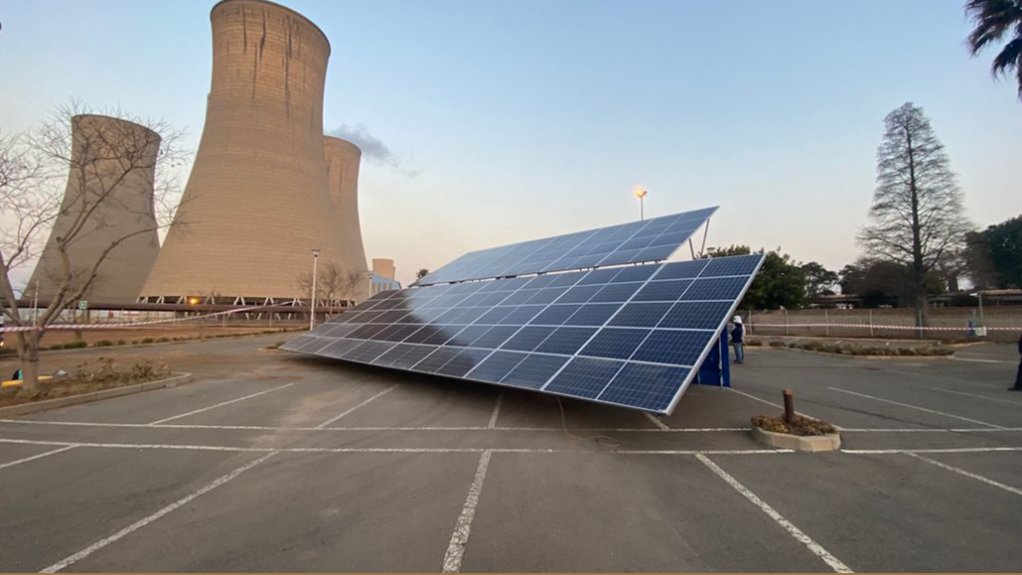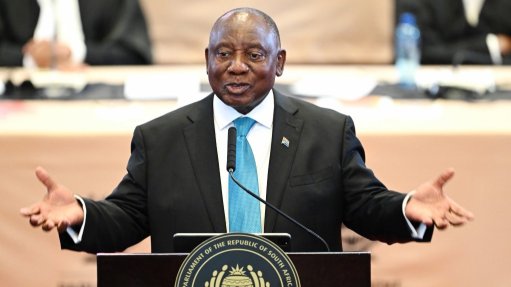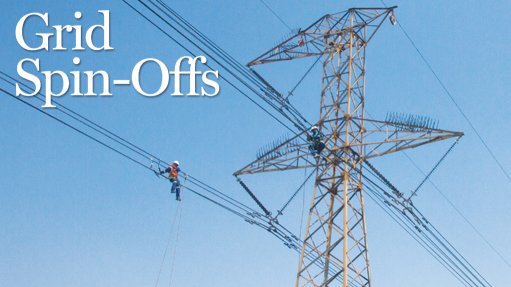Eskom ‘decouples’ renewables roll-out from coal station closure plan
Eskom CEO Dan Marokane reports that a decision has been made to “decouple” the closure of its coal stations from the building, in partnership, of new renewable energy generation capacity linked to its goal of being a net-zero emitter by 2050 and the just energy transition strategy.
In an address to members of the South African National Energy Association, Marokane also revealed that a board decision had been made for Eskom to participate directly in renewables projects on land adjacent to its existing power stations rather than releasing those grid-ready sites to private generators.
He said the first such project was under way alongside the Lethabo power station, in the Free State, where Eskom was aiming to build a 75 MW solar PV facility. A tender, which closed on June 4, had been issued for a bidder to design, engineer, construct, commission and maintain the solar facility.
“We have had to do some rethinking in terms of the strategy that we may have articulated before and that is to decouple the implementation of renewables programme from the shutting down of power stations,” he said, indicating that Eskom would be aiming to implement projects ahead of any closure.
The board had approved the Lethabo solar facility as the first project and there was an intention to pursue a similar strategy “alongside our existing fleet in Mpumalanga, in particular, on our land in close proximity to grid access”.
He said the projects would be pursued in partnership with the private sector in a way that leveraged their expertise in a specific technology, as well as their balance sheets and skills.
Reflecting on his previous tenure at Eskom, Marokane said Eskom had developed a strategy to develop a sizeable renewables project pipeline in partnership with others, but the plan failed to secure the necessary approvals.
“We believe it's still possible [and], for that reason, we have adjusted the approach that we had taken to the market two years ago of availing the land adjacent to a power stations to others to implement renewable projects,” he reported, highlighting that the properties would not face the grid-access constraints being experienced elsewhere.
The strategy is likely to raise questions about whether Eskom’s renewables projects will crowd-out independent power producers from securing allocations outlined in the Integrated Resource Plan, or whether Eskom will be required to apply for an IRP exemption to proceed.
Questions will also be raised about whether the new generation will need to replace the equivalent coal generation capacity to secure concessional Just Energy Transition Partnership funding.
Regarding the just transition, Marokane argued that the new approach would help Eskom manage the transition away from coal such that the new generation was commissioned ahead of closures, so as to avoid the problems that arose at Komati where alternatives for workers and communities were not in place at the time of retirement.
“So we going down that route and we have approved that path,” he said, indicating the intention was to replicate the Lethabo project across other sites.
He also reported that Eskom had secured an environmental impact assessment authorisation for the Tubatse pumped-hydro project and that “we have every intention to go ahead”.
On how Eskom Holdings’ subsidiary, the National Transmission Company South Africa (NTCSA), would fund and implement its ambitious expansion of the transmission grid, Marokane said a model for introducing private sector finance and skills was close to being finalised.
Announcements in this regard would be made once the NTCSA began operating as an independent entity in July.
Article Enquiry
Email Article
Save Article
Feedback
To advertise email advertising@creamermedia.co.za or click here
Press Office
Announcements
What's On
Subscribe to improve your user experience...
Option 1 (equivalent of R125 a month):
Receive a weekly copy of Creamer Media's Engineering News & Mining Weekly magazine
(print copy for those in South Africa and e-magazine for those outside of South Africa)
Receive daily email newsletters
Access to full search results
Access archive of magazine back copies
Access to Projects in Progress
Access to ONE Research Report of your choice in PDF format
Option 2 (equivalent of R375 a month):
All benefits from Option 1
PLUS
Access to Creamer Media's Research Channel Africa for ALL Research Reports, in PDF format, on various industrial and mining sectors
including Electricity; Water; Energy Transition; Hydrogen; Roads, Rail and Ports; Coal; Gold; Platinum; Battery Metals; etc.
Already a subscriber?
Forgotten your password?
Receive weekly copy of Creamer Media's Engineering News & Mining Weekly magazine (print copy for those in South Africa and e-magazine for those outside of South Africa)
➕
Recieve daily email newsletters
➕
Access to full search results
➕
Access archive of magazine back copies
➕
Access to Projects in Progress
➕
Access to ONE Research Report of your choice in PDF format
RESEARCH CHANNEL AFRICA
R4500 (equivalent of R375 a month)
SUBSCRIBEAll benefits from Option 1
➕
Access to Creamer Media's Research Channel Africa for ALL Research Reports on various industrial and mining sectors, in PDF format, including on:
Electricity
➕
Water
➕
Energy Transition
➕
Hydrogen
➕
Roads, Rail and Ports
➕
Coal
➕
Gold
➕
Platinum
➕
Battery Metals
➕
etc.
Receive all benefits from Option 1 or Option 2 delivered to numerous people at your company
➕
Multiple User names and Passwords for simultaneous log-ins
➕
Intranet integration access to all in your organisation





















